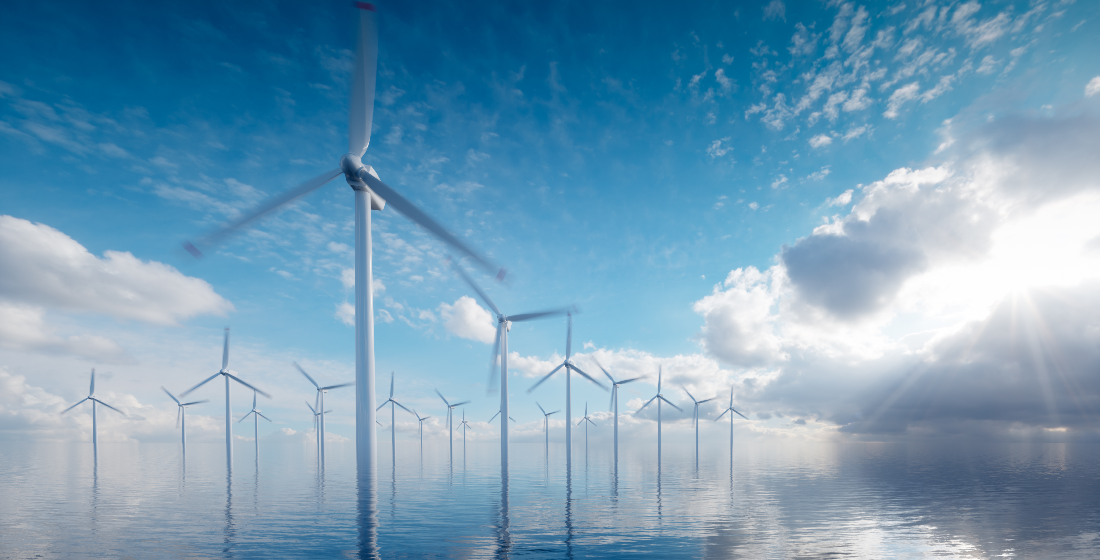Proximo Weekly: Asia-Pacific 2022 Deal of the Year Awards
The deals that expanded the possibilities in Asia-Pacific infrastructure finance in 2022.

Given the frustrations that it can sometimes cause project developers and lenders, Asia-Pacific’s position at the forefront of efforts to combat climate change will create both huge opportunities and huge challenges. It is now by far the largest emitter of carbon dioxide, but with India’s population now overtaking China’s, is likely to be leading the world economy for decades to come.
With the exception of Australasia, governments have never really warmed to the use of project finance-based structures to procure transport and social infrastructure, but over the last several decades, the region has been a reliable source of big-ticket conventional power and oil & gas deals.
With decarbonisation’s inexorable advance, the region’s lenders will have to decide the extent to which they are happy with the bankability of large-scale renewables projects, and also whether they can continue to lend to coal projects - in the guise of transition and retirement financings - and to LNG projects - if their Scope 1 emissions can be reduced enough.
The market-leading transactions in the region all illustrated these themes. They range from offshore ECB financings for Indian renewables, a lower carbon footprint for an Australian LNG facility, and a modest acceleration of the retirement timeline for a Philippine coal plant.
Big international lenders have still been able to prove their worth on newer and more challenging markets like Bangladesh and Uzbekistan. And local and international debt markets have both proved that avenues to recycle debt and equity in the region are improving.
On balance, and despite the historic track record, the opportunities in Asia’s project and infrastructure finance market are more plentiful than the challenges.
The list of regional winners is:
Asia-Pacific Wind - Zarafshan Wind
Zarafshan is the first utility scale wind project in Uzbekistan, and the first non-recourse wind project financing in the country. It also features strong support from commercial banks, meaning it is likely to set a strong regional benchmark.
Asia-Pacific Solar - ReNew Power RTC Green Loan
The combination of offshore dollar debt from an 11-strong lender group and an equity commitment from Japan’s Mitsui is a huge vote of confidence in India’s renewables market. The green loan labelling and combination of solar and storage also set firsts for the market, with the ReNew loan arguably comprising the largest renewables deal in India to date.
Asia-Pacific Power - Bhola 2 Refinancing
Actis’ acquisition of a stake in the Bhola 2 project in Bangladesh involved a commercial bank refinancing of a DFI debt package with a MIGA-insured but commercial bank provided SOFR-based facility. This tightly-structured refinancing marked several firsts for Bangladesh and paves the way for other financial sponsors to make inroads in the country.
Asia-Pacific Emerging Energy - South Luzon ETM
AC Energy quietly set a first for transition financing worldwide, with a sale and refinancing of a comparatively young coal plant in the Philippines. Other coal plant owners in the region will look to build on the South Luzon ETM template.
Asia-Pacific LNG - Pluto LNG 2 Acquisition
After a comparatively quiet spell, the Australian LNG market is poised to take off, and Pluto LNG 2 was the largest greenfield deal to close in Australia in 2022. The entry of a financial sponsor - GIP - also led the transaction to break ground in the way cost overrun - and Scope 1 emissions overrun - risks are allocated.
Asia-Pacific Transport - Cube Highways HAM Portfolio Refinancing
Cube Highways demonstrated the opportunities available to recycle debt in well-performing Indian transport assets with the rupee-denominated bond and loan refinancing of five toll roads.
Asia-Pacific Sponsor of the Year - Mitsui
There are definitely signs of momentum in Mitsui’s shift towards low-carbon energy. It remains a top-tier operator of FPSOs, is rebalancing rather than winding down its coking coal portfolio, and is increasing its stake in the Sakhalin 2 LNG project. But it made big investments in the Indian and Philippine renewables markets, is on track to divest its stake in the Paiton coal plant in Indonesia, and recently bought into an Australian carbon-farming business. In all these ventures it brought careful structuring and enviable financial firepower to the process.
Asia-Pacific Bank of the Year - SMBC
SMBC had roles on three of the region’s winners - ReNew, Bhola 2 and Pluto 2 - and all but one of the winners with a dollar component. It proved equally at home working in high-income and middle-income markets, and covers every major sector. In terms of volumes, its $2.2 billion in commitments put it slightly behind its two main Japanese competitors and State Bank of India, the latter of which took on $3.6 billion in exposure to Adani alone. But SMBC was far out ahead by transaction numbers, meaning it worked hard to access the region’s patchy dealflow.
Asia-Pacific Law Firm of the Year - Clifford Chance
Clifford Chance placed fourth on Proximo’s regional legal league tables, picked up roles where it counted. It was involved with the Pluto 2, Bhola 2 and Zarafshan transactions, and only the need for a stronger performance in Australasia stands in the way of it becoming the leading regional powerhouse.
Asia-Pacific Financial Adviser of the Year - CLSA
CLSA, now a subsidiary of CITIC Securities, is not well known as a project finance adviser. But it has built up a wealth of expertise in accessing pools of sustainable capital in Asia. It showed this off in a ground-breaking series of transactions for the Philippines’ AC Energy, where it combined a green bond financing with the market-first ETM for the South Luzon coal plant.
Selected news articles from Proximo last week
HICL recycling NWP equity into Altitude
HICL Infrastructure is selling 30% of its stake in the Northwest Parkway (NWP) toll-road project in the US for $86 million.
FID reached on €2.4bn Dieppe Le Treport offshore wind farm
A final investment decision has been made by Eoliennes en Mer Dieppe Le Treport for the €2.4 billion ($2.645 billion) Dieppe Le Treport offshore wind farm.
Perdaman closes on Ceres urea project financing
Perdaman Chemicals and Fertilisers has closed on financing for its A$6 billion Ceres (also known as Karratha) urea project in Western Australia.
ACWA signs $123m financing package for Kom Ombo
The 200MW Kom Ombo solar project in Egypt has set a new project loan record – it has signed twice in two years.A roughly $114 million DFI-backed deal with the EBRD, the OPEC Fund, the Green Climate Fund (GCF), African Development Bank (AfDB) and Arab Bank signed in 2021
SOUTH AMERICA
Ascenty extends debt term and size
Data centre operator Ascenty – which is jointly owned by Brookfield and Digital Realty, and has 105MW of installed data centre capacity in Brazil and 22MW spread across Chile, Colombia and Mexico – refinanced in late February via a $1.025 billion five-year facility.
The Proximo Intelligence subscription
Join our community of project finance professionals to get unrivalled access to unique analysis, market data and a global portfolio of expert industry events in the energy and infrastructure space. Click here to find out more





